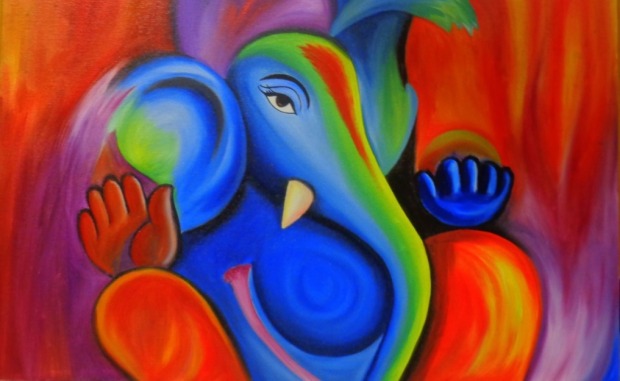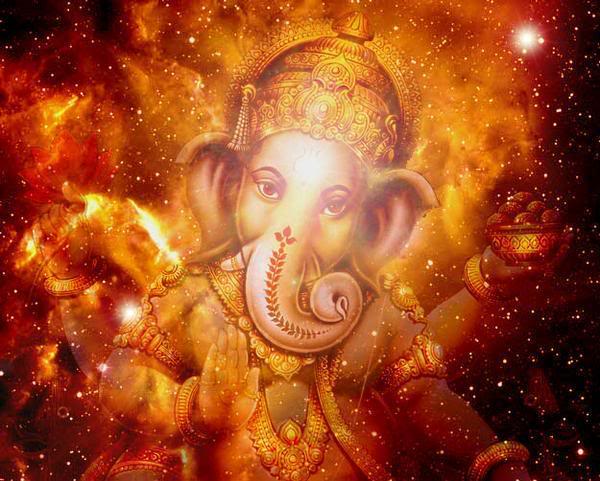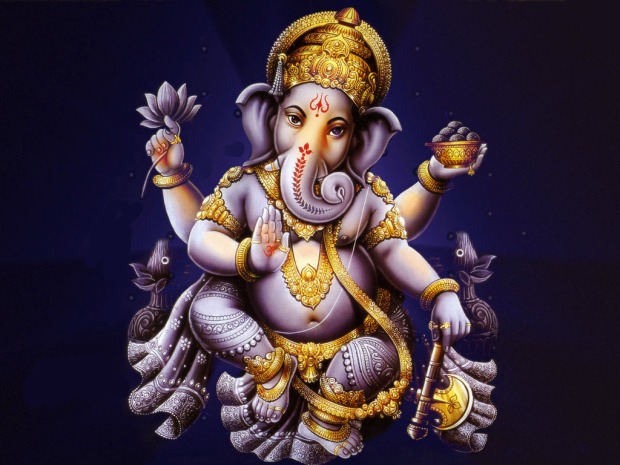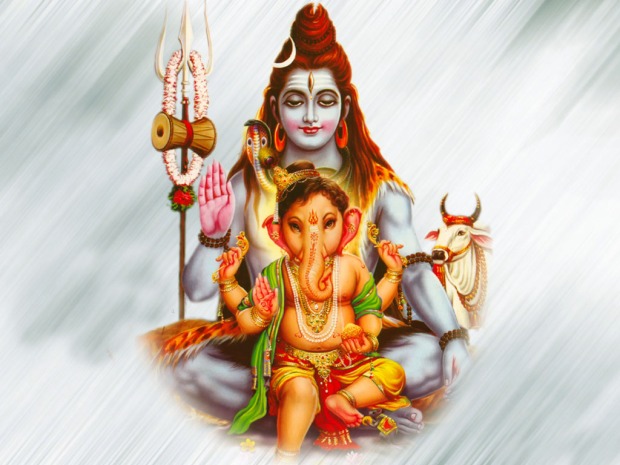Ganesh Chaturthi
 (For website url: http://www.doyoureckon.wordpress.com)
(For website url: http://www.doyoureckon.wordpress.com)
Loudly and with full happiness repeat this: “Ganpati Bapa Moriya!”
Welcome, Welcome, Welcome! Great god Ganesh will arrive at my place on this coming Monday i.e. 9th September 2013. He will stay for 10 days. Once again all friends, relatives and neighbours will get together at my place to spend good time with this wonderful guest. For those who cannot visit my place, you all can join us spiritually in all prayers and chanting.
A golden opportunity to make your wish come true. Whisper your wish into the ears of Lord Ganesh.
Technique is as follows:
> Offer his favourite food item “Modak” or any other foms of Laddu (sweet balls). If you cannot get it, there is another way to prepare laddu at home with three things only. Take Regular Indian Chapati (Roti), jaggery and ghee.
Crush chapati with hands as fine as possible (not like fine powder) and jaggery. Mix crushed chapati, jaggery and ghee very nicely and prepare balls of it.
> Flowers of his favourite color “Red”.
> Dhruva or Durva Grass is another most favourite thing to offer. Bermuda or Bahama Grass in English.
> Sanku Pushpam or Conch flower both flower and leaf is offered.
> Use Red Sandalwood paste on his forehead “Tilak”.
If you want to do the Puja at your premises:
> First clean the house and take a bath.
> A Clay image of Lord Ganesh is installed in a raised platform.
> Pray to Lord Ganesh and you can recite mantras or bhajans dedicated to Lord Ganesh.
> Next step is to invoke Ganesh into the image. This is known as pran-prathishta. The Pran Prathista mantra (Invocation) in Sanskrit is found in the Rig Veda and is part of Ganesh Suktha.
———————————————————————————————————————
Invocation in Sanskrit: (Sorry if there is any mistake in sanskrit invocation)
ganananh tva ganapatim havamahe kavim kavinam – upamashravastamam |
jyeshhtharajam brahmanan.h brahmanaspata A nah shrivnvannutibhih sida sadanam || (Rig Veda 2.23.1)
ni shhu sida ganapate ganeshhu tvamahurvipratamam kavinam |
na rite tvat.h kriyate kinchanare mahamarkam maghavan.h chitramarcha || (Rig Veda 10.112.9)
———————————————————————————————————————
Invocation in English:
We invoke You, O Ganapati of the ganas (Lord Shiva attendants), Who are Brahmana-spati of the brahmas (prayers), the wisest among the wise, Who abound in treasure beyond all measure, the most brilliant one. Do listen to our prayers, come with Your blessings and assurances of protection into our home, and be seated. (Rig Veda 2.23.1)
Sit down among the worshippers, O Ganapati, the best sage among the sages. Without You nothing can be done here or far. Accept with honour, O wealthy One, our great and variegated hymns of praise. (Rig Veda 10.112.9)
———————————————————————————————————————
After this, pray to god ganesh – Oh Lord Ganesh, Oh Ganpati Bapa, I have tried my best to do all this process and offerings. Please forgive me if there is any mistake done while doing this religious work. Please stay with me and my family and bless us with your divine love, light, power, health, knowledge, happiness, prosperity, wisdom. We all thank you for your priceless blessings. Thank you in full faith.
Ganesh Puja is bit flexible, our beloved god ganesh generally don’t get upset if a person does any mistake. In fact, god ganesh guides that person and makes him work as god ganesh wants. So don’t worry while doing puja. Just keep your mind and body and place as clean as possible, all the rest will be managed by God Ganesh himself.
Oh Ganpati Bapa, please shower your blessings on all of us and protect us from any evils of life. Thank you so much and we love you forever. Thank you.
Loudly and with full happiness repeat this: “Ganpati Bapa Moriya!”



